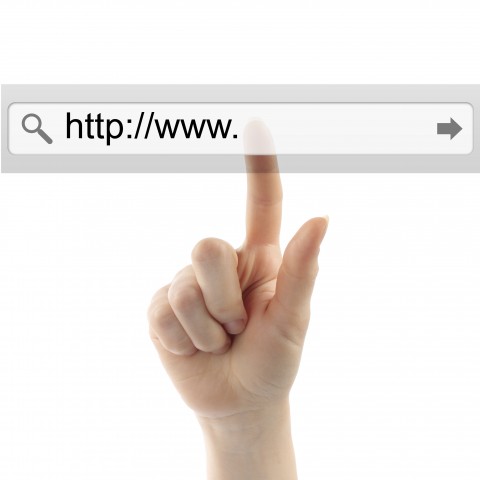
Internet slang is a relatively new way of communication that was first registered in the so-called Jargon File by Raphael Finkel in 1975. He recorded some of the most popular English slang phrases that are still in use, such as:
- BTW – By the way
- THX – Thanks
- FYI – For your information
But if you’re interested in learning about Bulgarian internet slang, then this guide from BulgarianPod101 is just for you! The information in this article will help you…
- …text your Bulgarian friends using the slang language they’re used to.
- …understand them when they text you.
- …communicate on social media.
Not convinced yet? Find out four more reasons why Bulgarian slang words will make you fluent.
This extensive overview contains multiple acronyms, abbreviated words, and letter/number combinations that form the Bulgarian internet jargon. You may be surprised to learn that much Bulgarian text slang and several internet expressions are derived from the more well-known English terms. To help you learn how to use each one, we’ve also included practical examples for your convenience!
 Table of Contents
Table of Contents
- Specific Ways to Write Bulgarian Letters Using Latin Alphabet and Numbers
- How is Bulgarian Internet and Text Slang Formed?
- Popular English Slang Used in Bulgarian
- Bulgarian Internet and Text Slang Directly Influenced by English
- Bulgarian Internet and Text Slang Abbreviations
- Internet and Text Slang Written in Latin Letters
- Other Common Internet and Text Slang Expressions
- How BulgarianPod101 Can Help You Learn Bulgarian
1. Specific Ways to Write Bulgarian Letters Using Latin Alphabet and Numbers
You might encounter some words written by your Bulgarian friends on Facebook, Twitter, Instagram, and other social media platforms that you cannot understand or translate because they’re written in Latin letters or contain numbers. In such cases, even Google Translate cannot help you.
That’s why BulgarianPod101 has prepared the following table of specific ways to write Bulgarian letters using letters from the Latin alphabet:
| Bulgarian Letter | Latin Letter / Numbers |
| а | а |
| б | b |
| в | v, w |
| г | g |
| д | d |
| е | е |
| ж | j, g, v, z, zh |
| з | z |
| и | i |
| й | i, j, y |
| к | k |
| л | l |
| м | m |
| н | n |
| о | о, 0 |
| п | p |
| р | r |
| с | s |
| т | t |
| у | u |
| ф | f |
| х | h, x |
| ц | c, tz, ts, z |
| ч | 4, ch |
| ш | 6, sh, s, { |
| щ | 6t, sht, st |
| ъ | а, y, w, @ |
| ь | i, j, y, x |
| ю | ju, u, yu |
| я | ja, ya, ia, q, 9, @ |
Here are some samples for you:
- 4a6a – 4 stands for ч (ch) and 6 stands for ш (sh), so the word is чаша (chasha) or “cup”
- ka6ta – 6t stands for щ (sht), so the word is къща (kashta) or “house”
- tr9bwa – 9 stands for я (ya) and w stands for в (v), so the word is трябва (tryabva) or “must”
If you would like to refresh your knowledge concerning the Bulgarian alphabet, you can follow this free guide from BulgarianPod101.
Try it yourself #1
Use the table above to try reading the following words in Bulgarian:
- cwete
- 6tastie
- 4owe4e
You can find the answers at the end of this article.
2. How is Bulgarian Internet and Text Slang Formed?

Bulgarian internet slang phrases do not follow the grammar and spelling rules of the language. In fact, they usually imitate the spoken language and jargon. They’re used mainly by young people in their online communication, but that doesn’t mean these people are illiterate. Slang is simply a tool used to make conversation much easier, save time while texting, and give communication a more informal feel. For this reason, many Bulgarian words are shortened to form slang terms.
Here are some text slang examples in Bulgarian to show you how this works:
| Bulgarian slang | English translation | How is it formed? | Examples |
| мое (moe) | can, may | Мое is formed by removing the letter Ж from the word може (mozhe), meaning “may” or “can.” | Мое да дойда. Moe da doyda. I may come. |
Note: In Bulgarian, there’s a personal pronoun мое (moe), which means “my” for neuter gender. Make sure not to confuse this pronoun with the slang term. Example:
| |||
| ноо (noo) | very | Ноо comes from the reduction of the word много (mnogo) meaning “much” or “very.” | ноо ясно noo yasno obviously |
| къф (kaf) | who, what | Къф comes from the reduction of the word какъв (kakav) meaning “who” or “what.” | къф e този? Kaf e tozi? Who is this? |
| Note: Because of the soundlessness of в at the end of the word какъв, the slang term къф reflects the sound f that can be heard in speech. | |||
| асам (asam) | I am | Асам comes from merging of the words аз and съм (az sam) meaning “I am.” | Асам добре. Asam dobre. I am okay. |
| ае (ае) | come on, let’s | Ае comes from the reduction of the word хайде (hayde) meaning “let’s.” | Ае да ходим. Ae da hodim. Let’s go. |
| кво (kvo) | what | Кво comes from the reduction of the word какво (kakvo) meaning “what.” | Кво каза? Kvo kaza? What did you say? |
- → Take a look at this list of the top 20 Bulgarian words you’ll need for the internet, provided by BulgarianPod101.
3. Popular English Slang Used in Bulgarian
Fortunately, many Bulgarian internet slang words are influenced by English slang, and there are some that are directly taken from English. This makes them easily recognizable by English speakers. Here are some of the most popular English text slang words widely incorporated into Bulgarian slang.
| English slang used in Bulgarian |
| fr (friend) |
| bb (bye-bye) |
| pas (password) |
| brb (be right back) |
| pic (picture) |
| pls (please) |
| 10x (thanks) |
| U? (And you?) |
| U2 (You, too) |
| x3m (еxtreme) |
Here are some examples of how these English abbreviations are used in Bulgarian text slang, along with their English meaning:
- Zdr fr, kak e?
(From: Здравей, приятелю, как си? – Zdravey, priyatelyu, kak si?)
Hello friend, how are you?
- Dai mi pas da vl9za pls.10x
(From: Дай ми парола да вляза, моля. Благодаря. – Day mi parola da vlyaza, molya. Blagodarya.)
Give me a pass to enter, please. Thanks!
- Prati mi pic pls.
(From: Прати ми снимка, моля. – Prati mi snimka, molya.)
Send me a pic, please.
4. Bulgarian Internet and Text Slang Directly Influenced by English

There are many Bulgarian slang words that transliterate English words. This is especially true for computer terms, such as: log, browse, download, etc. These words are adapted for the Bulgarian language by attaching Bulgarian verb endings to them.
Here are some examples:
| Bulgarian slang term | English translation |
| чатя (chatya) | to chat |
| даунлоудвам (downloadvam) | to download |
| логвам (logvam) | to log in |
| сийдвам (seedvam) | to seed |
| регвам (regvam) | to register |
| бъгвам (bagvam) | to bug |
- → Interested in using a Bulgarian keyboard to write some of the Bulgarian internet slang terms we’ve covered? Learn how to download a Bulgarian keyboard in this article from BulgarianPod101!
Try it yourself #2
We have a short exercise for you. Try to replace the English words with their Bulgarian translation in the following sentences:
- След малко ще (to chat).
Sled malko shte.
I will chat in a while.
- Много пъти се (to log in) днес.
Mnogo pati se … dnes.
I have logged in multiple times today.
- В момента (to download) един файл.
V momenta… edin fail.
I am downloading a file now.
You can find the answers at the end of this article.

5. Bulgarian Internet and Text Slang Abbreviations
Here are some of the most popular Bulgarian internet slang term abbreviations.
| Bulgarian abbreviation | English translation | How is it formed? | Examples |
| ББ (BB) | bye-bye | ББ comes from the abbreviation of the English “bye-bye,” transliterated in Bulgarian. | ББ, до скиф. BB, do skif. Bye-bye, see you. |
| БР (BR) | bravo | БР comes from the reduction of the word браво (bravo). | БР, ноо добре. BR, ноо добре. Bravo, very good. |
| ДДЗ (DDZ) | I don’t know | ДДЗ comes from the abbreviation of the phrase де да знам (de da znam) meaning “I don’t know.” | ДДЗ къф e този. DDZ kaf e tozi. I don’t know who this is. |
| ЗДР (ZDR) | hi | ЗДР comes from the reduction of the word здравей (zdravey) meaning “hi.” | ЗДР, как е? ZDR kak e? Hi, how are you? |
| ЗН (zn) | I know / meaning | ЗН comes from the reduction of the word знам (znam), and based on the context it means either “meaning” – значение (znachenie) – or “I know.” | ЗН кво да прая. Zn kvo da praya. I know what to do. |
| ИНТ (int) | interesting | ИНТ comes from the reduction of the word интересно (interesno) meaning “interesting.” | ИНТ кво стана после? Int kvo stana posle? Interesting, what happened next? |
| КО ПР (ko pr) | What do you do? | КО ПР comes from the reduction of the phrase какво правиш (kakvo pravish) meaning “What do you do?” | ЗДР, КО ПР? Zdr, ko pr? Hi, what do you do? |
| НЗ (nz) | I don’t know / it doesn’t matter | НЗ comes from the abbreviation of either the phrase не зная (ne znaya) meaning “I don’t know” or the phrase няма значение (nyama znachenie) meaning “it doesn’t matter.” | НЗ за кво говориш Nz za kvo govorish. I don’t know what you are talking about. |
| НП (np) | no problem | НП comes from the abbreviation of the phrase няма проблем (nyama problem) meaning “no problem.” | НП, споко! Np spoko! No problem, calm down! |
| ЧЧ/44 (ch-ch) | bye-bye | ЧЧ or 44 comes from the abbreviation of the phrase чао-чао (chao-chao) meaning “bye-bye.” | 44, до скиф. Ch-ch, do skif. Bye-bye, see you. |

6. Internet and Text Slang Written in Latin Letters
Many Bulgarian internet abbreviations and slang terms are borrowed directly from English. They’re written in Latin letters, and English speakers can easily recognize them and understand their meaning.
Here are some examples:
| Bulgarian abbreviation | English translation | Bulgarian translation |
| ASL | Age, Sex, Location | Възраст, пол, място (Vazrast, pol, myasto) |
| ASAP | As soon as possible | Възможно най-бързо (Vazmozhno nay-barzo) |
| ATM | At the moment | В момента (V momenta) |
| AYT | Are you there | Там ли си? (Tam li si) |
| BBL | Be back later | Ще се върна по-късно (Shte se varna po-kasno) |
| BY | Bye | Довиждане/чао (Dovizhdane/chao) |
| BRB | Be right back | Ей сега се връщам (Ey sega se vrashtam) |
| BTW | By the way | Между другото (Mezhdu drugoto) |
| CUL8R | See you later | Ще се видим по-късно (Shte se vidim po-kasno) |
| DND | Do not disturb | Не безпокойте (Ne bezpokoyte) |
| FYI | For your information | За твоя информация (Za tvoya informatsiya) |
| G2G | Got to go | Трябва да тръгвам (Tryabva da tragvam) |
| GR8 | Great | Страхотно (Strahotno) |
| LOL | Laughing out loud | Бурен смях (Buren smyah) |
| ILU | I love you | Обичам те (Obicham te) |
| ILU2 | I love you too | И аз те обичам (I az te obicham) |
| SRY | Sorry | Съжалявам (Sazhalyavam) |
| W8 | Wait | Чакай (Chakay) |
| USU | Usually | Обикновено (Obiknoveno) |
| JAM | Just a minute | Само минутка (Samo minutka) |
| N/A | Not applicable | Не е в наличност (Ne e v nalichnost) |
| OMG | Oh, my God! | О, Господи! (O, Gospodi!) |
Try it yourself #3

Now, you can try to replace all of the bolded Bulgarian phrases with the corresponding slang terms from the table above in the following dialogues:
- ЗДР, там ли си?
ZDR, tam li si?
Hi, are you there?
- В момента съм зает. Ще се върна по-късно.
V momenta sam zaet. Shte se varna po-kasno.
I’m busy right now. I will come back later.
- ОК, ще се видим по-късно.
OK, shte se vidim po-kasno.
OK, see you later.
***************
- ЗДР, скъпи, там ли си?
ZDR, skapi, tam li si?
Hi, honey, are you there?
- Съжалявам, в момента не мога. Трябва да тръгвам.
Sazhalyavam, v momenta ne moga. Tryabva da tragvam.
I’m sorry, I can’t right now. I got to go.
- Чакай… само минутка.
Chakay… samo minutka.
Wait… just a minute.
- Ко?
Ko?
What?
- Обичам те!
Obicham te!
I love you!
- И аз те обичам!
I az te obicham!
I love you too!
- Чао!
Chao!
You can find the answers at the end of this article.

7. Other Common Internet and Text Slang Expressions
Let’s look at a few more groups of Bulgarian internet slang words and phrases you’re likely to see while texting or messaging your Bulgarian friends.
Combinations of Bulgarian and English Words
The modern Bulgarian slang language contains many terms that combine Bulgarian and English words, or English loan words such as:
| Bulgarian slang | English translation | How is it formed? |
| ae da 4at (ae da chat) | Let’s chat. | Ae comes from the abbreviation of the Bulgarian word хайде (hayde) meaning “let’s,” and 4at comes from the English word “chat.” |
| sa ne mi se talk, sry (sa ne mi se tolk, sry) | I don’t want to talk now, sorry. | Sa comes from the abbreviation of the Bulgarian word сега (sega) meaning “now,” and the English words “talk” and “sorry” (sry) are used. |
| np, thx mnoo za pic (np, thx mnoo za pic) | No problem, thanks a lot for the picture. | Np comes from the abbreviation of the English phrase “no problem.” Thx comes from the reduction of the English word “thanks.” Mnoo comes from the reduction of the Bulgarian word много (mnogo) meaning “much” or “many.” Za in Bulgarian means “for.” Pic comes from the English word “picture.” |
Emoticons Used in Bulgarian
Bulgarian teens often use emoticons or emojis to express their feelings. Here’s a list of the most common ones.
| Emoticon | Meaning |
| 🙂 | smile |
| 😀 | big smile |
| 🙁 | sadness |
| 😛 | stick out a tongue |
| 😉 | wink |
| :> | irony |
| :‘( | crying |
| :* | kiss |
| { } | hug |
| {{**}} | kisses and hugs |
Do you want to express deep feelings for a loved one? You can take a look at our comprehensive blog post on Bulgarian love and romance phrases, and try using them in conjunction with some of the emoticons above!
8. How BulgarianPod101 Can Help You Learn Bulgarian
BulgarianPod101 prepared this extensive Bulgarian internet slang words guide to help you understand most of the Bulgarian internet slang terms used today. Our list covered terms used not only by the young people, but also by Bulgarians who often chat or work on a PC.
If you liked this article and would like to continue learning with us, make sure to create your free lifetime account today. We provide an array of fun and practical learning materials, including themed vocabulary lists, video and audio lessons, and grammar resources. We look forward to having you with us!
Before you check your answers below, let us know in the comments how confident you feel about using text and internet slang in Bulgarian now. Do you have any questions or concerns on the topic?
Answers to Exercise #1
- cwete – c stands for ц (ts) and w stands for в (v), so the word is цвете (tsvete) meaning “flower.”
- 6tastie – 6t stands for щ (sht), so the word is щастие (shtastie) meaning “happiness.”
- 4owe4e – 4 stands for ч (ch) and w stands for в (v), so the word is човече (choveche) meaning “man,” used to address someone.
Answers to Exercise #2
- След малко ще чатя.
Sled malko shte chatya.
I will chat in a while.
- Много пъти се логвам днес.
Mnogo pati se logvam dnes.
I have logged in multiple times today.
- В момента даунлоудвам един файл.
V momenta downloadvam edin fail.
Answers to Exercise #3
- ЗДР, AYT?
- ATM съм зает. BBL.
- ОК, CUL8R.
***************
- ЗДР, скъпи, AYT?
- SRY, ATM не мога. G2G.
- W8… JAM.
- Ко?
- ILU!
- ILU2!
BY!










